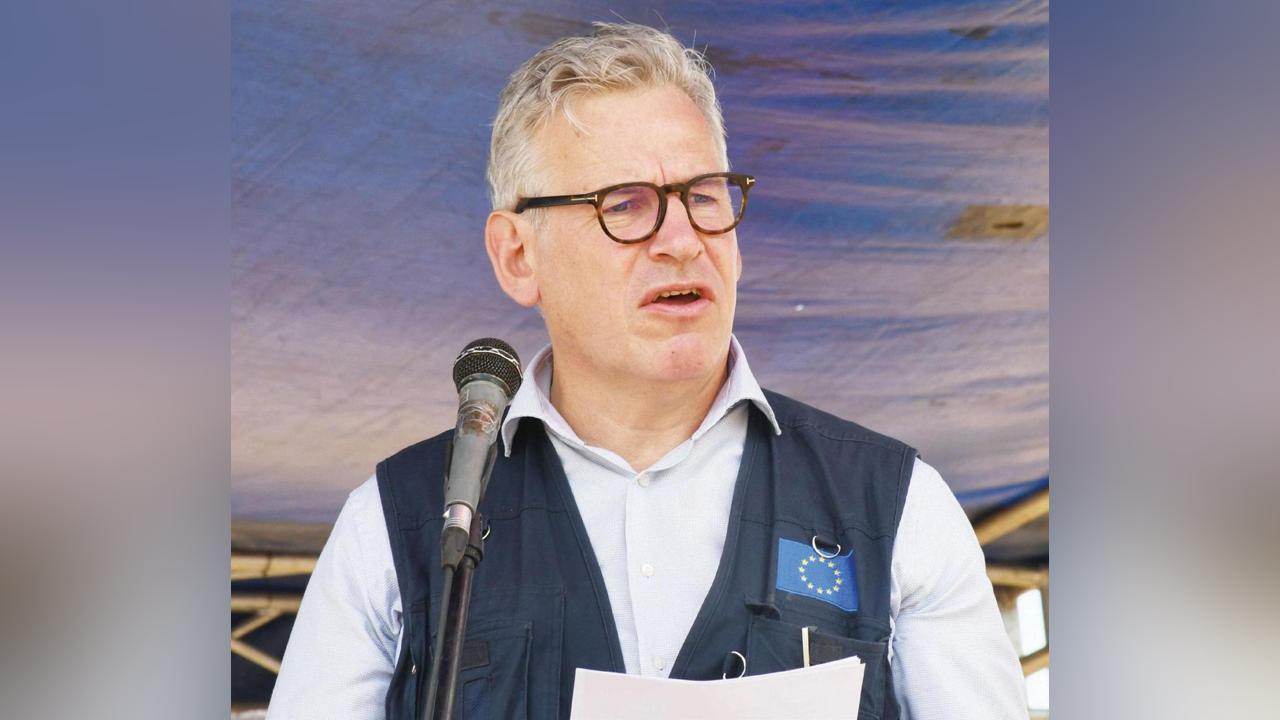Africa-Press – Malawi. The European Union (EU) will continue providing direct budget support to Malawi despite the recent cancellation of the International Monetary Fund’s (IMF) Extended Credit Facility (ECF).
However, the EU Ambassador to Malawi Rune Skinnebach said absence of the IMF programme will make implementation more challenging.
He told Times Radio’s Kulinji Programme on Tuesday that while an IMF programme is not a condition for the EU’s budget support, it significantly helps with implementation and monitoring.
He said the EU’s budget support relies on many of the same criteria as the IMF’s ECF, including public finance management, macroeconomic stability, debt restructuring, revenue mobilization, and fiscal discipline.
“An IMF ECF is not conditionality for our programme, but it is definitely helping it. It will make it much more difficult to maintain the full variable tranches in the absence of an IMF programme.
“We have variable tranches that are due to come at the end of this year and next year, and they depend on a series of criteria. The fact that we have the ECF made it much easier for us to launch the budget support,” Skinnebach said.
He noted that despite the ECF cancellation, the IMF will continue Article IV consultations with Malawi, maintaining ongoing discussions on the macroeconomic framework that forms the main requirement for EU budget support.
The ambassador outlined a fundamental shift in the EU’s approach to development partnerships, moving away from the traditional donor-beneficiary relationship toward investment-based collaboration.
“The old donor-beneficiary relationship has proven to be unsustainable. The EU’s Global Gateway initiative launched in 2022, mobilizes €300 billion in investments, with half designated for Africa. Unlike traditional aid, these funds will be provided as concessional loans, investment leverage, and guarantees rather than grants.
“It is an offer that is up to the government of Malawi to take, to make sure that Malawi is attractive for investments. If it’s not, then the investments will go elsewhere,” he warned.
Political scientist Ivy Nkhata raised concerns over aid dependency creating a cycle of corruption and the need for greater alignment between donor priorities and Malawian aspirations.
She called for greater participation by ordinary Malawians in aid discussions and more accountability from donors to ensure aid serves genuine local needs rather than imposed agendas.
“Our reliance on foreign aid has created this vicious cycle of dependency and corruption in Malawi. Aid for so long has fueled corruption as the government tends to prioritise the donor system over public welfare.
“We want to see how the EU and other partners justify certain aid and ensure they are accountable to the people of Malawi as a whole, not just the political leaders they deal with,” Nkhata said.
Meanwhile, Secretary to Treasury Betchani Tchereni has dismissed concerns about the IMF ECF cancellation, saying Malawi has access to funding from other sources beyond traditional Western donors. Tchereni told the media that Malawi’s relationship with the IMF remains intact despite the ECF cancellation.
For More News And Analysis About Malawi Follow Africa-Press






